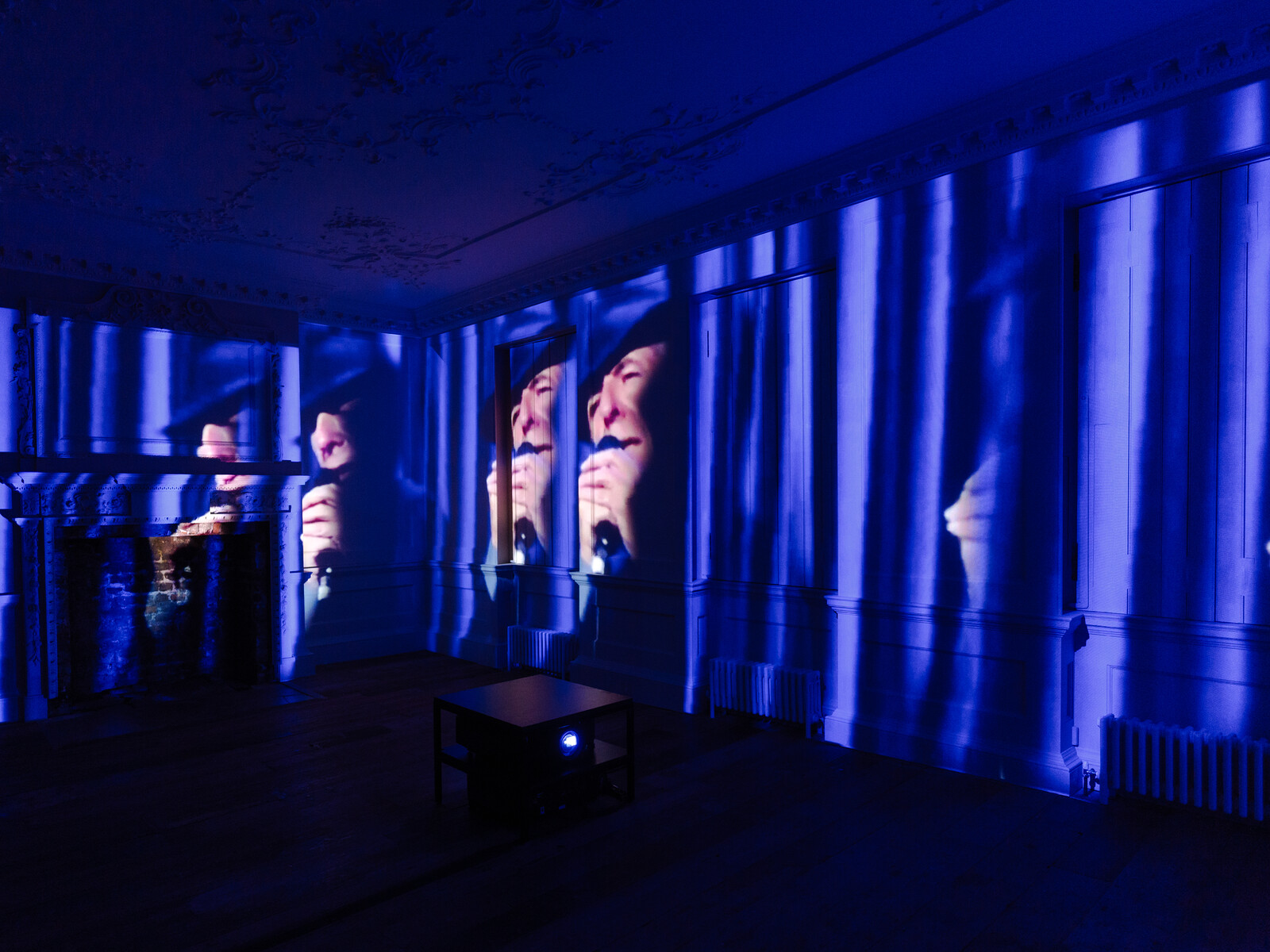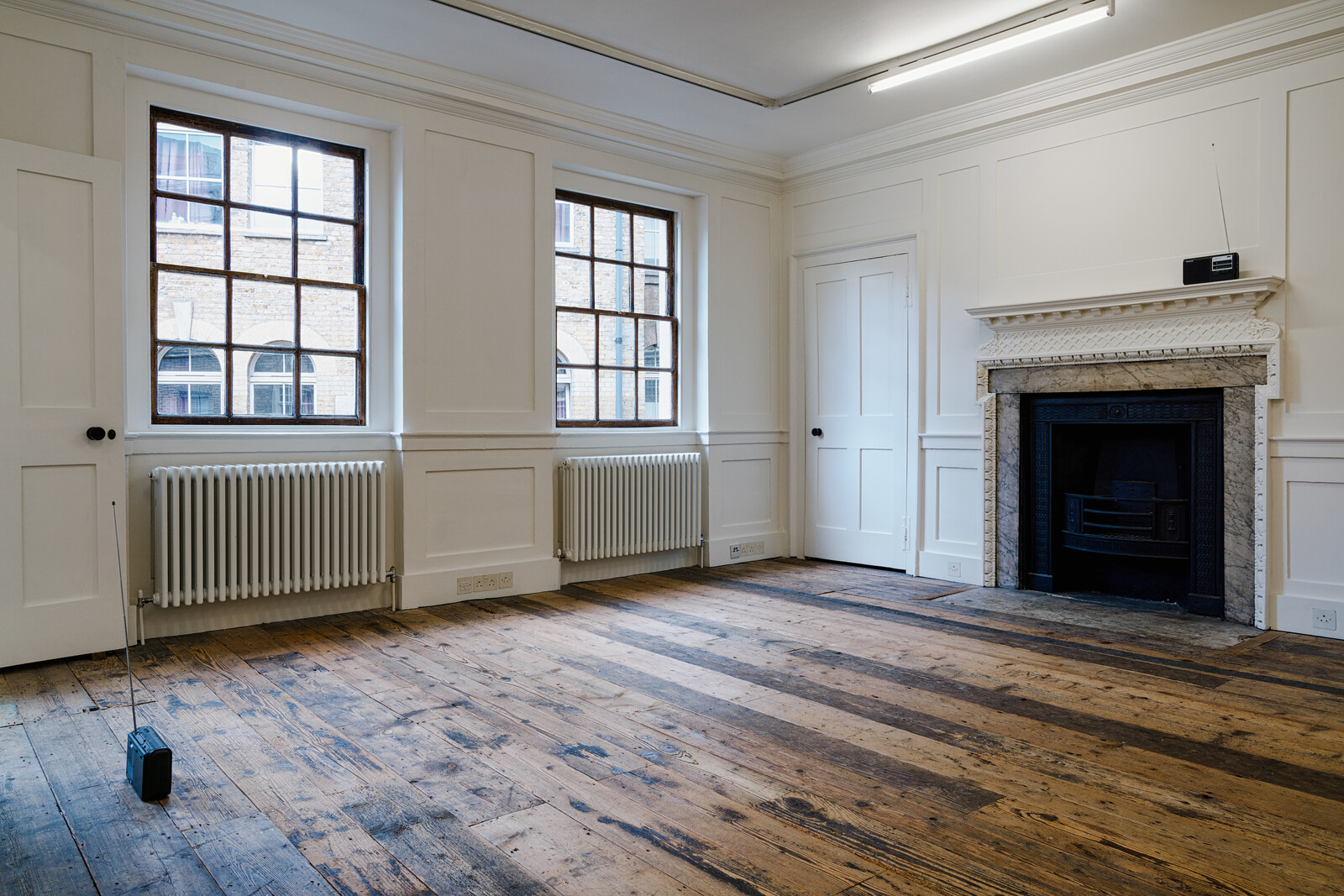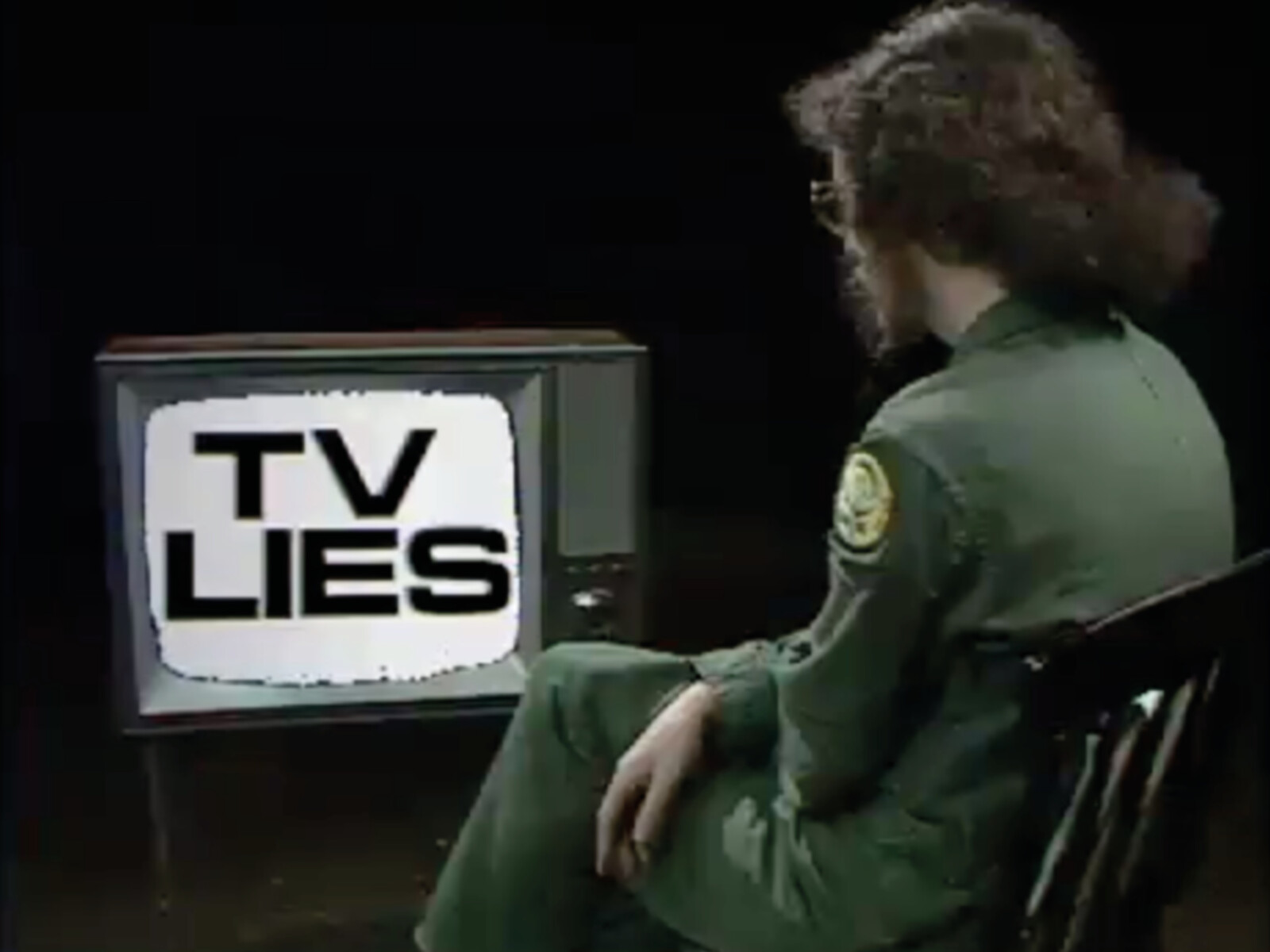Categories
Subjects
Authors
Artists
Venues
Locations
Calendar
Filter
Done
November 7, 2023 – Review
Lutz Bacher’s “AYE!”
Michael Kurtz

The first room of “AYE!” is carpeted with fine sand. Audio from Philip Kaufman’s 1988 film adaptation of The Unbearable Lightness of Being fills the air. “Tomas,” a woman asks between kisses, “what are you thinking?” To which Tomas replies: “I’m thinking how happy I am.” The clip loops—the lovers locked in this tender moment, accompanied by piano music and the thrum of rain and windscreen wipers—and with every repeat becomes more cloying and meaningless. Four television screens in a row to one side emit a white glow which fades each time the loop ends, an electronic sunset on the beach. There is a formal resonance between the artificially uniform texture of the sand, the blank monochrome screens, and the eternally recurring sweet nothings. In these elements—nature, entertainment, love—we seek comfort, but here find them in a state of entropy: metronomic, sterile, vacuous.
A child in red dungarees arrives at the door and points at me. “There’s a big man in the sandpit,” she announces to her father, getting his reassurance before dancing freely across the room. She writes her name in the sand, and in doing so shares something that the pseudonymous Lutz Bacher, who died in 2019, never …
October 20, 2023 – Feature
London Roundup
Chris Fite-Wassilak

“Celebrating 20 years,” ran the bus and magazine ads for Frieze London, keen to capitalize on having reached a milestone. In 2003, the first fair was welcomed as a galvanizing and creative force—a Studio International review from the time breathlessly described it as the “the real thing […] the apotheosis of swing […] the Stargate.” Such enthusiasm seems cute now, after the artist projects that supposedly set the fair apart from other trade events (Mike Nelson earning a Turner Prize nomination in part for his 2006 installation at the fair) have been scaled back almost to invisibility, and the “Focus” section for younger galleries, introduced in 2013, effectively assimilated parallel smaller fairs such as Zoo and Sunday. Of the 164 stand-holders at this year’s Frieze London, only 30 of them (predominantly, of course, the larger multi-venue galleries) were at the first 2003 fair. Through all this, the fair has long presented itself as an annual temporary institution, masquerading as such among the long-term underfunding of the city’s public museums.
This hoarding of resources has a distorting effect on coinciding and parallel events that would otherwise register as an alternative, both to the fair and other art spaces around London. Several …
March 10, 2023 – Review
“People Make Television”
Brian Dillon

For much of its century-long history, the BBC has been an object of nostalgia in Britain. It began as a private company, and in 1927 a royal charter decreed its mission to “inform, educate, and entertain” the nation; the corporation is funded today by a television license levied on all households that watch its output. The public-service remit always appears to have been better fulfilled in the past, during a vague and movable golden age. Public service, of course, has rarely meant public access or participation. An exception was the work of the Community Programme Unit, which in 1972 began soliciting program ideas from interest groups and campaigning organizations. Around three in ten proposals were accepted; successful applicants were then provided with a small budget, a production team, and a final say in the show’s edit—subject to legal niceties and the BBC’s sometimes vexing commitment to “balance.” Copies of the finished programs were given to the groups who devised them, but most were never broadcast again. “People Make Television,” an absorbing exhibition at the newly reopened Raven Row, includes over 100 of the CPU’s programs (alongside other public-access projects of the time), and seems to conjure a genuine lost era …
